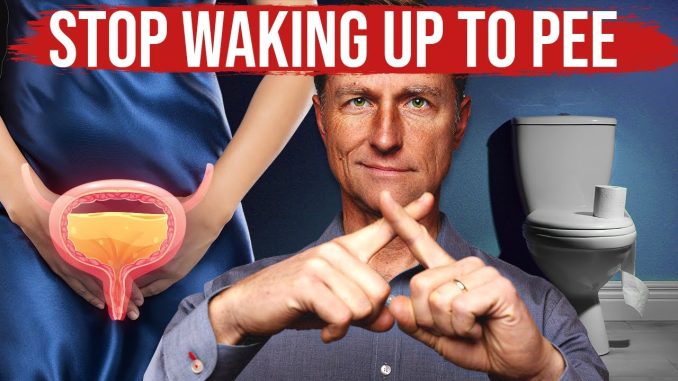
While sleeping, the average person reduces their urination by roughly 30%. The number of people who can get six to eight hours of sleep without getting up to use the loo is growing rapidly. It’s not uncommon for at least two or three individuals to get up and use the loo at that hour. Because of this, getting to sleep could be challenging...CONTINUE READING THE FULL ARTICLES HERE
Causes
It’s possible that if you drink a lot of water right before bed, you’ll have to get up more frequently to use the restroom. After supper, you might relax with a drink like coffee or wine.
Nighttime toilet visits are common because, among other things:
A urinary tract infection is a frequent condition that can cause bladder problems. It might be challenging to get to sleep if you consume a lot of liquids, especially alcoholic and caffeinated beverages, in the hours leading up to bedtime.
(BPH) The prostate is often considered a crucial gland during pregnancy.
All of the following could be contributing to the issue: maintaining an upbeat outlook despite mounting medical evidence to the contrary.
Diabetes
Most people consume large amounts of water routinely.
A feeling of despair so profound it can crush your heart.
An excessively high blood calcium concentration.
Water tablets are one form of diuretic.
Diabetics with diabetes insipidus frequently dehydrate themselves.
The construction of the legs
Getting up multiple times during the night to urinate may increase the risk of developing obstructive sleep apnea and other sleep disorders. This is because getting up to use the loo frequently disrupts one’s sleep. Nocturia may subside once underlying sleep issues are addressed. It’s probable that people will have trouble getting along in the evening if they’re under a lot of stress and worry.
Treatment can resolve the perplexing issue of insufficient urination. If diabetes was to blame, controlling the patient’s blood sugar levels would be the most effective course of action.
Overactive bladder sufferers often try antidepressants or mood-altering medicines first. Fasting before training. This means that you will have to hold your bladder for a full month and a half. Doing this regularly will teach your bladder to go longer between emptyings. This results in fewer trips to the toilet.
Our dietary preferences also evolve over time for this very same reason. Don’t do anything that could damage your bladder or force you to the loo frequently. Caffeine, alcohol, carbonated beverages, tomato-based goods, chocolate, artificial sweeteners, and hot food are just some of the things that could fall into this category.
Some spicy meals may also have a stimulating effect. If you have a bladder that empties too fast, cutting less fibre in your diet may help. The importance of eating a variety of high-fiber meals at each meal is highlighted.
The mere sight of refreshing beverages raises one’s spirits. If you don’t want your urine to become more concentrated, it’s crucial that you consume enough water. Avoid alcoholic beverages in the six hours leading up to bedtime. Because of the sweat, you probably won’t be able to get much rest that night.
Kegel is a regular at the fitness centre. The frequency and severity of your potty breaks can be reduced by employing these strategies.
Additionally, they can be used to enhance long-term bladder control by strengthening the muscles surrounding the bladder and urethra. Keeping your bladder under control may be facilitated by exercising your pelvic muscles at least three times day for at least five minutes each.
Biofeedback. If you follow this strategy, you will get insight into and control over the functioning of your pelvic muscles.
Kindly Follow Our WhatsApp Channel
Disclaimer: This content including advice provides generic information only. It is in no way a substitute for a qualified medical opinion. Always consult a specialist or your own doctor for more information. NEWSHOUR does not claim responsibility for this information.
